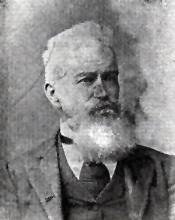A Quote by Aristotle
There is an error common to both oligarchies and to democracies: in the latter the demagogues, when the multitude are above the law, are always cutting the city in two by quarrels with the rich, whereas they should always profess to be maintaining their cause; just as in oligarchies the oligarchs should profess to maintain the cause of the people, . .
Related Quotes
Democracy appears to be safer and less liable to revolution than oligarchy. For in oligarchies there is the double danger of the oligarchs falling out among themselves and also with the people; but in democracies there is only the danger of a quarrel with the oligarchs. No dissension worth mentioning arises among the people themselves. And we may further remark that a government which is composed of the middle class more nearly approximates to democracy than to oligarchy, and is the safest of the imperfect forms of government.
I don't think Dr. King helped racial harmony, I think he helped racial justice. What I profess to do is help the oppressed and if I cause a load of discomfort in the white community and the black community, that in my opinion means I'm being effective, because I'm not trying to make them comfortable. The job of an activist is to make people tense and cause social change.
We study the glory of God, and the honour and liberty of parliament, for which we unanimously fight, without seeking our own interests... I profess I could never satisfy myself on the justness of this war, but from the authority of the parliament to maintain itself in its rights; and in this cause I hope to prove myself an honest man and single-hearted.
A belief in moral absolutes should always make us more, not less, critical of both sides in any conflict. This doesn't mean that both sides are equally wrong; it means that since we all fall short of moral perfection, even the side whose cause is truly righteous may commit terrible acts of violence in defense of that cause -- and, worse, may feel quite justified in committing them. That is the difference between being righteous and being self-righteous. Moral standards are absolute; but human fidelity to them is always relative.









































